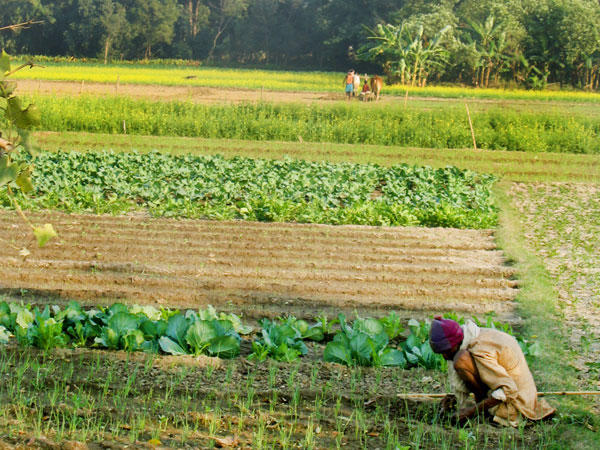Workshop to address access and benefit-sharing systems

40 national focal points for the International Treaty on Plant Genetic Resources for Food and Agriculture and Convention on Biological Diversity's Nagoya Protocol to meet key stakeholders in Rome, Italy from 3-6 June 2014.
40 national focal points for the International Treaty on Plant Genetic Resources for Food and Agriculture and Convention on Biological Diversity's Nagoya Protocol to meet key stakeholders in Rome, Italy from 3-6 June 2014.
The International Treaty on Plant Genetic Resources for Food and Agriculture (ITPGRFA) and the Convention on Biological Diversity (CBD) and its Nagoya Protocol (NP) are international agreements that commit their member states to implement very different access and benefit-sharing (ABS) systems. One system, under the ITPGRFA, encourages international pooling and sharing of genetic diversity; the other system, under the CBD/NP, maximizes each country’s sovereign control over their genetic resources. Progress in domestic implementation of both systems has been relatively slow partly as a result of uncertainty about how to ensure that they are implemented in mutually supportive ways.
In collaboration with the ABS Capacity Development Initiative and the Secretariats of the ITPGRFA and the CBD, Bioversity International is bringing together National Focal Points from both agreements, to explore mutually supportive mechanisms for national-level implementation. The meeting is also supported by the CGIAR Research Programme on Climate Change, Agriculture and Food Security (CCAFS).
"In order to enhance the collaboration between the National Focal Points, the organizers asked for joint expressions of interest from the both focal points in each country on the understanding that otherwise their applications wouldn’t be considered," says Michael Halewood, head of the policy group at Bioversity International and CCAFS scientist. "We initially expected to have to chase after people, but in the end we got more applications than we could handle. We have 20 pairs of national focal points – one for the plant treaty, one for the CBD’s Nagoya Protocol – coming from 20 countries."
At the meeting, to be held in Rome at the Food and Agriculture Organization of the UN (FAO) from 3-6 June, the National Focal Points will interact with resource people from seed companies and farmer organizations, research organizations, international and national genebanks, the Global Crop Diversity Trust and others concerning their practical experiences providing, receiving, managing genetic resources under the ITPGRFA and CBD/Nagoya Protocol as part of their conservation, breeding, natural resource management and climate change adaptation efforts.
"We have surveyed the National Focal Points about their experiences to date, and almost all have confirmed challenges related to coordinating mutually supportive implementation of the two access and benefit-sharing systems. There is a clear need for decision-making tools and coordination models. Those will be the longer-term products that will result from the meeting. We also hope to be able to work closely with some of the participating countries after the meeting, countries that will pilot some of the best practices identified," said Andreas Drews, Manager of the ABS Capacity Development Initiative. "This workshop is designed to respond to the need of national focal points, technical supporting agencies and donors to get out of our silos, and work to build solutions that span across the agricultural and environment sectors." "Indeed," Halewood concluded, "it is not realistic to be talking about developing long-term national strategies to respond to climate change, for example, if there is confusion at the interface of two such fundamentally important agreements related to access and benefit sharing. They have to be working in sync to facilitate progress."
To know more about this topic, read a recently published paper Implementing 'mutually supportive' access and benefit-sharing mechanisms under the Plant Treaty, Convention on Biological Diversity, and Nagoya Protocol by Michael Halewood and other authors.
Follow the links for more about CCAFS and its work related to the use of crop diversity to adapt to climate change, Bioversity International, the ABS Capacity Development Initiative, ITPGRFA and CBD and the Nagoya Protocol.
Photo: Farmer in Nepal. Credit: Bioversity International\B.Sthapit
This story is part of the 2014 Annual Report
